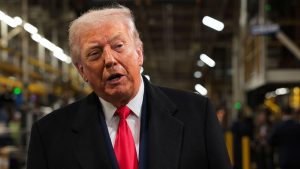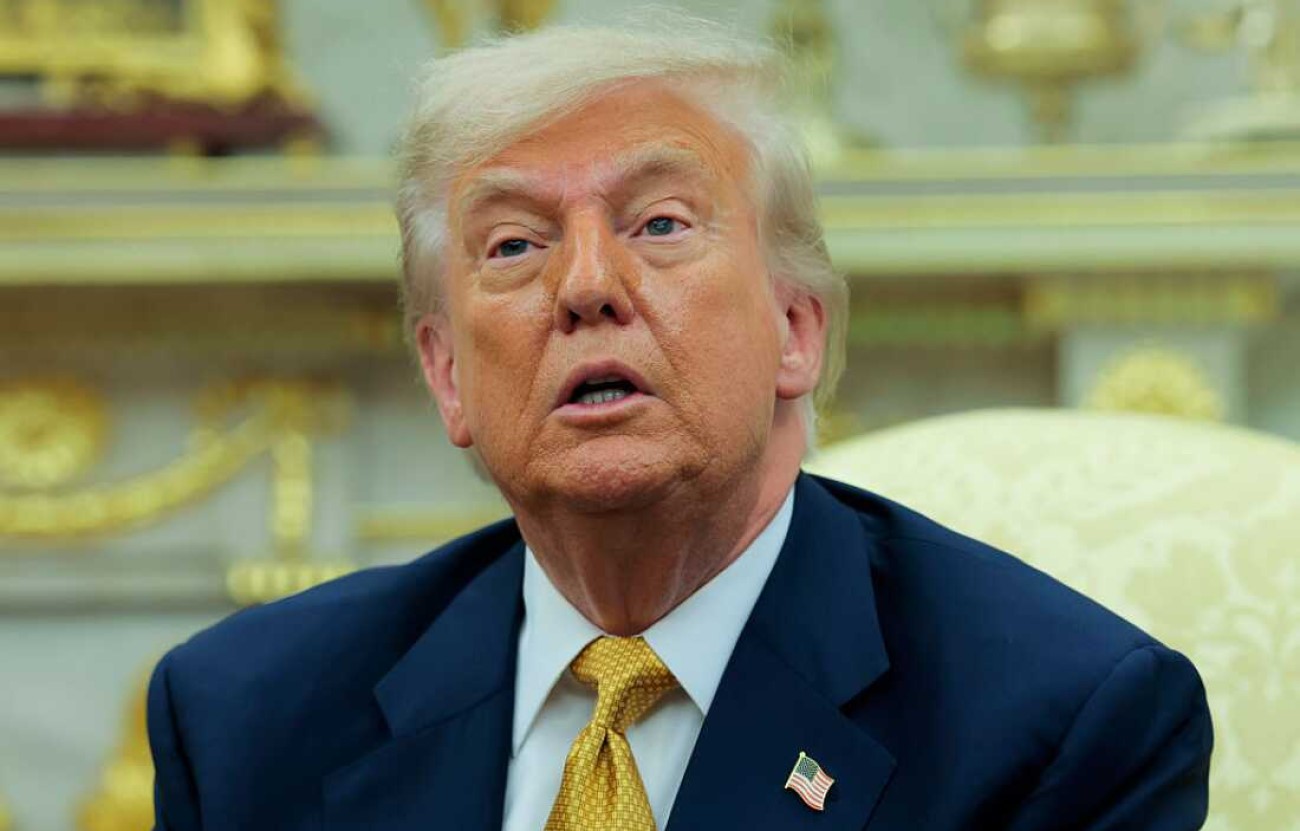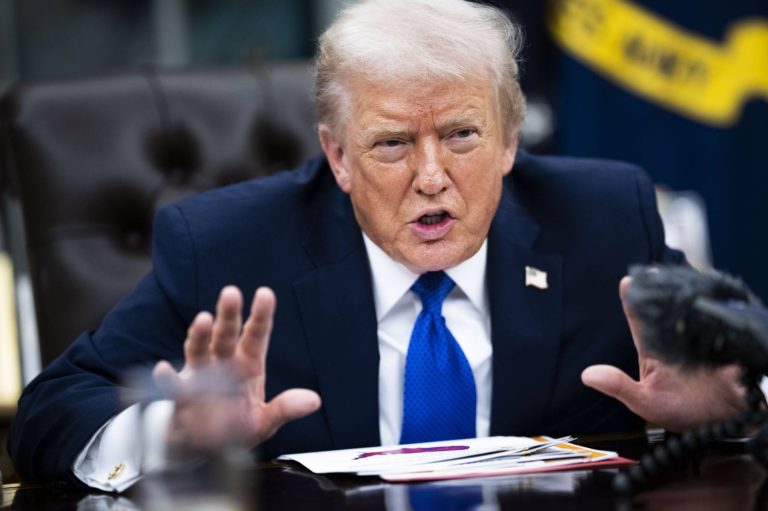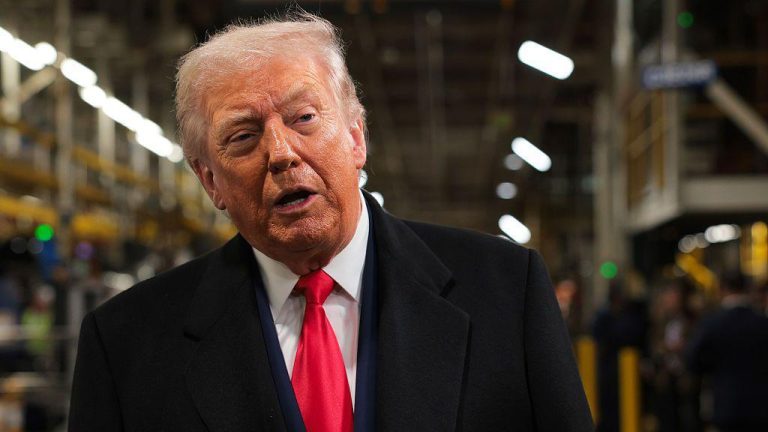When a prominent figure from America’s most revered political dynasty performs a complete ideological about-face that contradicts decades of public statements and positions, it creates seismic waves that extend far beyond individual party politics into the very heart of conservative identity and historical legacy. This unprecedented reversal has left political observers scrambling to understand the motivations behind such a dramatic shift, while raising fundamental questions about loyalty, principle, and the evolving nature of Republican politics in the modern era. The transformation involves not just a change of opinion, but a complete reexamination of political allegiances that were once considered unshakeable, suggesting that even the most established conservative voices are grappling with the realities of contemporary governance and the effectiveness of traditional political approaches.
The Anatomy of an Unprecedented Political Reversal
In an astonishing turn of events that has left political pundits reeling across the ideological spectrum, a major conservative figure has dramatically abandoned his previous position and emerged as an unexpected voice of support for policies and leadership he once vehemently opposed. This transformation represents more than a simple change of mind—it signals a potential realignment within conservative circles that could have far-reaching implications for the Republican Party’s future direction and internal unity.
The individual at the center of this political earthquake is Michael Reagan—the son of former President Ronald Reagan and once a vociferous anti-Trump Republican—who has dramatically changed his tune in ways that have surprised both allies and adversaries. Once an outspoken critic of Donald Trump’s candidacy and policies, the 79-year-old political figure has recently taken to social media to praise President Trump for his bold initiatives with an enthusiasm that would have been unthinkable just years ago.
In a series of posts on X (formerly Twitter), Michael Reagan lauded Trump for creating the U.S. Department of Government Efficiency, claiming it has uncovered billions in wasteful spending—a move he insists would have made his father proud. He also fired back at critics who selectively invoke the Reagan legacy while casting aspersions on Trump, demonstrating a protective stance toward the current administration that represents a complete reversal of his previous positions.
This dramatic shift raises profound questions about the nature of political evolution, the influence of policy outcomes over personality preferences, and the complex relationship between historical legacy and contemporary governance. Reagan’s transformation from critic to supporter offers a unique window into the internal struggles facing traditional conservatives as they navigate the realities of modern political effectiveness versus ideological purity.
From Steadfast Opposition to Reluctant Admiration
For decades, Michael Reagan’s name was synonymous with a staunch conservative philosophy inspired by his father’s legacy, but his relationship with the Trump movement began as one of skeptical opposition that bordered on outright hostility. A vocal critic during the Trump era, he once condemned Trump’s leadership with the kind of moral certainty that suggested an unbridgeable philosophical divide between the two political approaches.
During the 2016 campaign and the subsequent tumultuous years that followed, Reagan was unyielding in his criticism, arguing that Trump’s unorthodox approach and populist stances would undermine the core values of the Republican Party that his father had spent decades building and defending. His public statements from this period reflected a deep-seated disapproval of a candidate whose methods diverged sharply from the conservative orthodoxy that Ronald Reagan had championed and that Michael had spent his career defending.
Reagan’s early opposition to Trump was rooted in more than just stylistic differences—it represented a fundamental disagreement about the direction of conservative politics and the methods by which political goals should be pursued. He viewed Trump’s populist appeal and unconventional communication style as departures from the dignity and principled approach that he believed should characterize conservative leadership.
However, recent developments have forced a dramatic reassessment of his views that goes beyond simple political calculation to encompass a genuine reevaluation of effectiveness versus orthodoxy. In a series of blunt and unfiltered posts on X, Michael Reagan expressed his newfound admiration for President Trump with a directness that caught even close political observers off guard.
“FYI, it is amazing that you all of a sudden support my father when for 8 years you treated him like you are treating Trump today,” he posted, revealing not just support for Trump but also a deep frustration with what he sees as the hypocrisy of political critics who invoke his father’s memory selectively. With these words, Reagan not only defended Trump’s policies but also challenged his detractors for their selective memory regarding his father’s legacy and the treatment Reagan himself received during his presidency.
The Catalyst for Transformation: Policy Over Personality
The catalyst for this dramatic change appears to be multifaceted, involving both specific policy achievements and a broader recognition of political effectiveness that transcends personal style preferences. Not only has Trump’s administration embarked on several initiatives that resonate with traditional conservative fiscal responsibility, but Reagan has also observed critics questioning the consistency of the Republican establishment’s loyalty to its own historical figures and principles.
Reagan’s recent posts indicate that he now views Trump as a necessary force in revitalizing the party—a force capable of exposing government waste and restoring fiscal discipline in ways that traditional Republican approaches had failed to achieve. His enthusiastic support for the newly established Department of Government Efficiency represents a case study in how policy results can override personality objections for pragmatic conservatives.
According to Reagan, the department’s aggressive campaign to root out wasteful spending would have earned his father’s approval if it had been enacted during the Reagan era, suggesting that he sees Trump’s approach as a natural evolution of conservative principles rather than a departure from them. This perspective represents a significant shift from viewing Trump as an aberration to seeing him as a potentially effective implementer of conservative governance.
The transformation also reflects Reagan’s growing frustration with what he perceives as the ineffectiveness of traditional Republican establishment approaches to achieving conservative policy goals. After decades of incremental progress and frequent setbacks, Reagan appears to have concluded that more aggressive and unconventional methods may be necessary to achieve the kind of dramatic reform that conservatives have long advocated.
Defending Legacy While Embracing Change
One of the most significant aspects of Michael Reagan’s recent statements is his passionate defense of his father’s legacy against what he sees as selective and hypocritical invocations by Trump’s critics. His criticism of those who have long used Ronald Reagan’s image—often idealized as a symbol of integrity and conservative virtue—while simultaneously condemning Trump’s policies reveals a sophisticated understanding of how political legacy is weaponized in contemporary debates.
“Give Trump time and get out of the way,” he asserted with characteristic directness. “Remember, my dad ended up kicking your a**es.” This blunt language represents more than just support for Trump; it’s a reminder that even Ronald Reagan faced fierce opposition and criticism during his presidency, much of it from the same establishment figures who now invoke his memory to criticize Trump.
Reagan’s shift comes at a time when many within the Republican Party are wrestling with a new political landscape that seems to reward different approaches than those that characterized previous eras of conservative success. The rapid transformation of American conservatism over the last decade has led to ideological rifts, with some older conservatives feeling alienated by the populist turn of the modern GOP while others, like Reagan, have found ways to reconcile traditional principles with contemporary methods.
Michael Reagan’s candid reflection on these changes suggests that he has found the current political dynamics more aligned with his vision of strong, decisive leadership than the often ineffective gentility that has characterized much of establishment Republican politics in recent decades. In his view, Trump’s emphasis on curbing government waste and promoting efficiency stands in stark contrast to the hyper-partisanship and dysfunction that many traditionalists associate with the contemporary political scene.
While he concedes that he may still disagree with certain aspects of Trump’s approach—particularly in areas of style and communication—Reagan’s overall message is one of cautious optimism rooted in pragmatic results. He sees Trump as a necessary disruptor who is willing to challenge the status quo in ways that traditional Republican leadership had been unwilling or unable to do, a quality that, despite previous reservations, now earns his reluctant but genuine admiration.
The Department of Government Efficiency: A Conservative Dream Realized
Central to Michael Reagan’s newfound support for Trump is his enthusiastic endorsement of the U.S. Department of Government Efficiency, an initiative that represents the kind of aggressive approach to government reform that conservatives have advocated for decades but rarely seen implemented with such determination and scope.
The Trump administration’s creation of this new entity was designed to combat what many conservatives see as rampant waste in federal spending—a mission that has resonated deeply with conservative voters and policy advocates who have grown frustrated with incremental approaches to government reform. The department’s aggressive efforts to uncover and eliminate wasteful spending represent exactly the kind of bold action that conservatives have long demanded from their leaders.
According to Michael Reagan’s recent posts, the department’s work is not only vindicating Trump’s vision but also reinforcing traditional conservative principles of accountability in government and fiscal responsibility. Reagan believes that such measures, which expose inefficiencies that have long plagued the federal bureaucracy, are exactly the kind of reform that his father would have championed if he had possessed the political capital and institutional support to implement them.
The department’s approach represents a significant departure from traditional government reform efforts, which have typically focused on incremental changes and bureaucratic adjustments rather than the kind of comprehensive overhaul that Trump has attempted. For Reagan, this aggressive approach to government efficiency demonstrates that Trump’s administration is willing to take the kind of bold action that traditional Republican leadership had talked about but rarely implemented.
Furthermore, Reagan’s enthusiastic endorsement of these reforms is coupled with his criticism of those who attempt to tarnish Trump’s legacy by invoking his father’s name inappropriately. “Quit using my father to bash Trump,” he tweeted, drawing a sharp distinction between legitimate policy criticism and partisan attacks that misuse historical legacy for contemporary political purposes.
Internal Party Dynamics and the Future of Conservative Politics
Michael Reagan’s unexpected change of heart highlights broader divisions within the Republican Party that extend beyond simple personality preferences to encompass fundamental disagreements about political strategy, messaging, and the most effective approaches to implementing conservative policies in the modern era.
For years, the Trump wing of the Republican Party has been at the center of conservative politics, but Trump’s unorthodox style and populist appeal have alienated some traditionalists who long for the perceived dignity and measured approach of earlier conservative leaders. Reagan’s public endorsement of Trump is significant because it signals that even those who were once among his most articulate critics may be coming to see the benefits of the current administration’s policies when evaluated on their merits rather than their methods.
This internal realignment comes at a critical juncture for the GOP as it attempts to define its identity and strategic approach for future elections. With upcoming political battles on the horizon and a rapidly shifting political landscape, the party’s ability to present a unified, coherent vision for the future depends partly on reconciling these internal tensions between traditional conservative approaches and more populist, aggressive methods.
Michael Reagan’s comments suggest that a substantial segment of the party’s base, particularly moderates and older conservatives who initially viewed Trump with skepticism, are beginning to reconsider their allegiances based on policy outcomes rather than stylistic preferences. They see Trump’s actions—especially initiatives like the Department of Government Efficiency—as bold steps that are necessary to counteract what they perceive as decades of ineffective incrementalism and bureaucratic resistance to meaningful reform.
Yet the potential for continued internal conflict remains significant. While some Republicans now support Trump’s reforms and appreciate their effectiveness, others continue to hold onto a nostalgic vision of conservatism that prioritizes traditional values, measured rhetoric, and a more conventional approach to governance that emphasizes consensus-building over confrontational tactics.
The Role of Media and Historical Memory in Political Discourse
The media’s role in shaping public perception of political figures and their legacies cannot be overstated, particularly in an era where historical memory is increasingly filtered through contemporary partisan perspectives. For decades, the legacy of Ronald Reagan has been invoked as a gold standard for conservative leadership, but as political battles become more ideological and partisan, this legacy is increasingly weaponized by various factions for their own purposes.
Michael Reagan’s recent posts challenge those who selectively invoke his father’s image to criticize Trump, arguing that the current administration’s achievements deserve recognition on their own merits rather than being dismissed through inappropriate historical comparisons. His blunt retort—”Yes, my father spoke about tariffs when he was POTUS… that was 40 years ago, it is a different time with a different POTUS. For God’s sake, quit using my father to bash Trump”—represents a call for a more nuanced understanding of political history and context.
Reagan’s message reflects a broader frustration with how political legacy is manipulated in contemporary discourse. He suggests that while historical figures should be celebrated and their achievements recognized, they should not be used as convenient tools in modern partisan battles that ignore the different challenges and contexts that contemporary leaders face.
This debate over legacy reflects a larger struggle in American politics about how to balance respect for historical achievements with the need to adapt to current realities and challenges. As new issues emerge and new forms of governance evolve, the methods and approaches that once defined successful conservative leadership may no longer be sufficient or appropriate for addressing contemporary problems.
International Implications and Global Conservative Movements
The reverberations of Trump’s policies and Michael Reagan’s endorsement of them extend beyond domestic politics to influence international perceptions of American conservative governance and its effectiveness in addressing global challenges. Trump’s bold initiatives—particularly his focus on government efficiency and fiscal responsibility—have attracted attention from conservative policy experts and political movements around the world who are grappling with similar challenges in their own contexts.
Michael Reagan’s support for these policies is partly rooted in his belief that they will help restore America’s standing on the global stage by demonstrating that democratic governments can effectively address bureaucratic inefficiency and fiscal irresponsibility. This perspective reflects a broader conservative argument that effective governance at home strengthens American leadership and credibility internationally.
Trump’s critics often argue that his populist approach, which frequently includes hardline stances on foreign affairs and immigration, represents a departure from the more measured, strategic conservatism that characterized American leadership during the Reagan era. However, Reagan’s transformation in perspective reflects a growing belief among some conservatives that contemporary challenges require more dynamic and unconventional approaches than those that proved successful in previous decades.
For Michael Reagan, the question is not whether Trump’s methods perfectly mirror his father’s approach, but whether they are effective in achieving similar goals of limited government, fiscal responsibility, and American strength. His evolving perspective suggests that he has concluded that effectiveness in governance may be more important than strict adherence to traditional methods, particularly when those traditional methods have proven insufficient to address contemporary challenges.
Personal Reflection and the Weight of Political Legacy
At its core, Michael Reagan’s transformation represents more than just political calculation—it reflects a deeply personal reckoning with legacy, principle, and the responsibilities that come with carrying a famous political name. As the son of a president who continues to epitomize conservative ideals for many Americans, Reagan has spent his adult life grappling with the expectations and responsibilities that come with the Reagan legacy.
For many conservatives, the Reagan legacy represents a benchmark of integrity, leadership, and moral clarity that provides a standard for evaluating contemporary political figures. However, the modern political arena has become a battleground where these ideals are often contested and reinterpreted in ways that would have been difficult to imagine during the 1980s.
Michael Reagan’s recent social media posts suggest a willingness to embrace a new political reality, one in which President Trump’s unorthodox methods are not only acceptable but may be necessary for achieving conservative policy goals that have proven elusive through traditional approaches. His remark, “Give Trump time and get out of the way. Remember my dad ended up kicking your a**es,” represents a defiant call to critics to recognize that effective leadership sometimes requires methods that may be uncomfortable or unconventional.
This personal evolution reflects broader questions about how political legacy should be interpreted and applied in contemporary contexts. While historical achievement provides important guidance and inspiration, Reagan’s transformation suggests that rigid adherence to past methods may be less important than achieving the underlying goals that motivated those historical successes.
Conclusion: Embracing Pragmatic Conservative Evolution
Michael Reagan’s surprising transformation from staunch Trump critic to cautious supporter represents a pivotal moment in the ongoing evolution of American conservatism and offers important insights into how political movements adapt to changing circumstances while maintaining core principles. His candid reflections on the state of the Republican Party, his criticism of those who selectively invoke his father’s legacy for partisan purposes, and his endorsement of Trump’s bold policy initiatives signal that the conservative movement is at a critical juncture.
For Reagan, the call is clear: it’s time to embrace a new political reality where effective leadership and pragmatic reforms take precedence over nostalgic attachment to particular styles or methods from previous eras. “Give Trump time and get out of the way,” he declared—an unapologetic challenge to critics and a rallying cry for conservatives to unite behind approaches that demonstrate concrete results rather than mere rhetorical consistency.
As the Republican Party and the broader conservative movement move forward, they must balance the weight of their illustrious past with the demands of modern governance and the expectations of contemporary voters who are increasingly focused on results rather than process. The Trump administration’s unorthodox approach may not satisfy every traditionalist, but for growing numbers of conservatives like Michael Reagan, it represents a necessary adaptation to an ever-changing political and policy environment.
Michael Reagan’s evolution serves as a microcosm of this broader transformation—a testament to the idea that while core conservative values endure, the strategies and methods used to uphold and implement them must evolve to meet contemporary challenges. His willingness to revise his earlier assessments based on policy outcomes rather than personal preferences demonstrates the kind of intellectual honesty and pragmatic flexibility that may be necessary for conservative success in the modern era.
In an era marked by polarized media, shifting political allegiances, and rapidly evolving challenges, the future of American conservatism will depend on the ability to forge new coalitions, articulate compelling visions, and demonstrate effective governance that achieves conservative policy goals regardless of the unconventional methods that may be required. Michael Reagan’s bold shift of perspective represents both a personal journey and a broader call to action for conservatives to reexamine their priorities, engage in honest self-reflection, and chart a course that honors their historical principles while embracing the opportunities and necessities of contemporary political reality.

Sarah Mitchell is a bestselling novelist recognized for her insightful and emotionally resonant stories that explore the complexities of human relationships. Originally from Denver, Colorado, Sarah grew up in a family of teachers who nurtured her curiosity and love for storytelling. She studied psychology at Stanford University, where she became fascinated by the intricacies of human behavior—an interest that would later shape her writing career. Sarah’s novels are praised for their nuanced characters, intricate plots, and ability to capture the subtle tensions that define love, friendship, and family ties. Her breakthrough novel, The Spaces Between Us, became an instant bestseller, lauded for its honest portrayal of strained family relationships and the fragile bonds that hold people together. Since then, she has published several works that continue to captivate audiences around the world. Outside of her writing career, Sarah is passionate about mental health advocacy and often partners with organizations to promote awareness and support for those struggling with emotional well-being. Her personal life is quieter—she enjoys hiking in the Colorado mountains, practicing yoga, and spending time with close friends. With each new book, Sarah Mitchell cements her reputation as a writer who illuminates the beauty and struggles of human connection.









